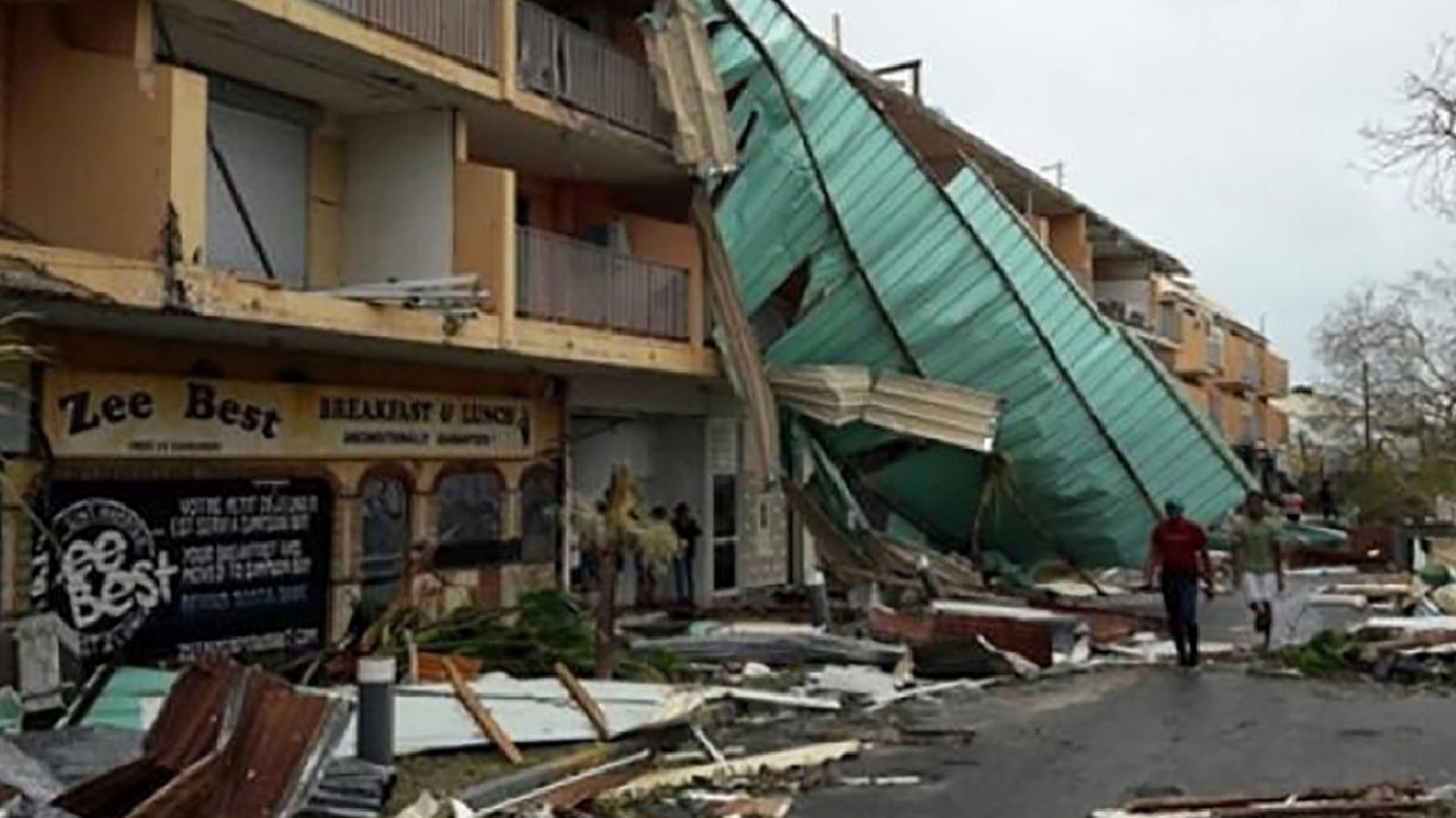Barbuda after the hurricane: Residents return to pick up pieces
- Published
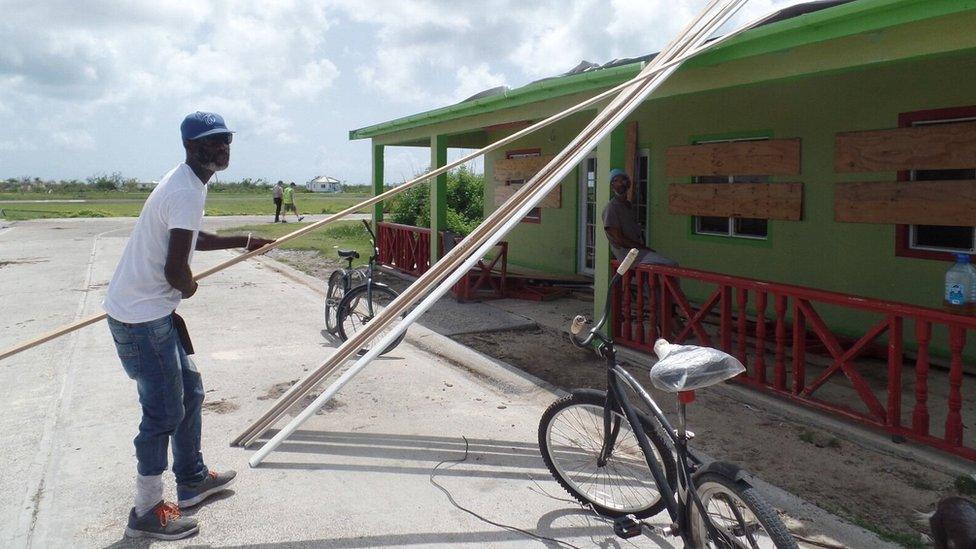
One man helps fix the local bakery where owners hope to be selling fresh bread again this week
Emotions are high in the low morning sun. The crowd gathered is far more than the boat can carry.
As a beleaguered official begins her sombre roll call, each person - armed with brooms, mops and gloves, and blinking against the bright light - is hoping theirs will be the next name called.
These are the grim faces of the Barbudans who lost everything they had when cataclysmic Hurricane Irma barrelled through their island on 6 September, prompting a mandatory evacuation two days later.
A month on, many are still living in shelters on sister island Antigua and have not yet received permission to return to begin the onerous task of sorting through the rain-sodden remains of their possessions and rebuilding their pulverised houses.
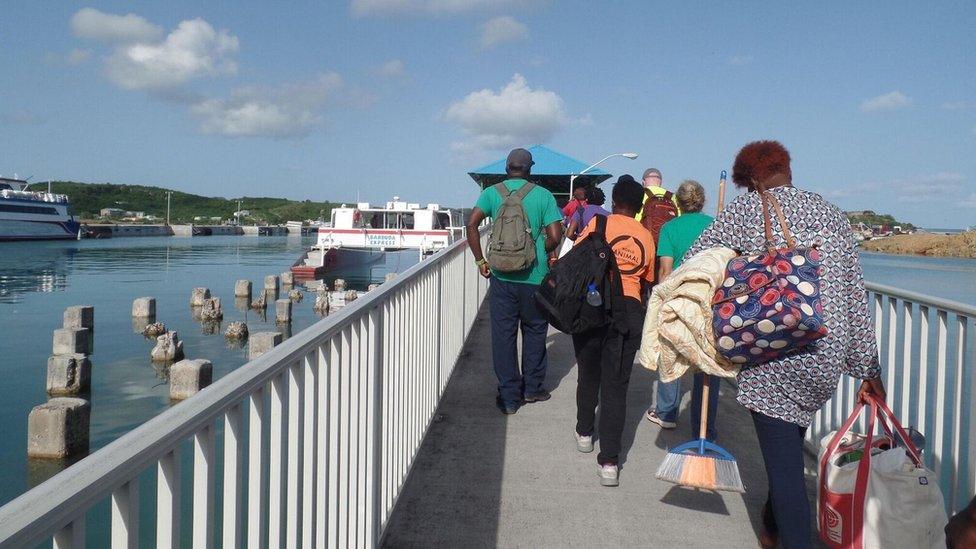
Many are travelling home just for a day to salvage possessions; their houses are too badly damaged to stay longer
Authorities are keen to strike a balance between allowing the 1,800 residents home and ensuring there is the infrastructure to cope.
Today, the Warner family are among the lucky ones. But they are under no illusions about what awaits them. Their home was one of many smashed to pieces by Irma's ferocious 185mph winds.
For now, sorting through that carnage will have to wait, says Juliette Warner.
Today's toil involves cleaning up her sister's property, which fared far better. Husband Devon will start by replacing the missing roof with tarpaulin, while Juliette and 16-year-old daughter Cheniesha busy themselves clearing the yard of debris.
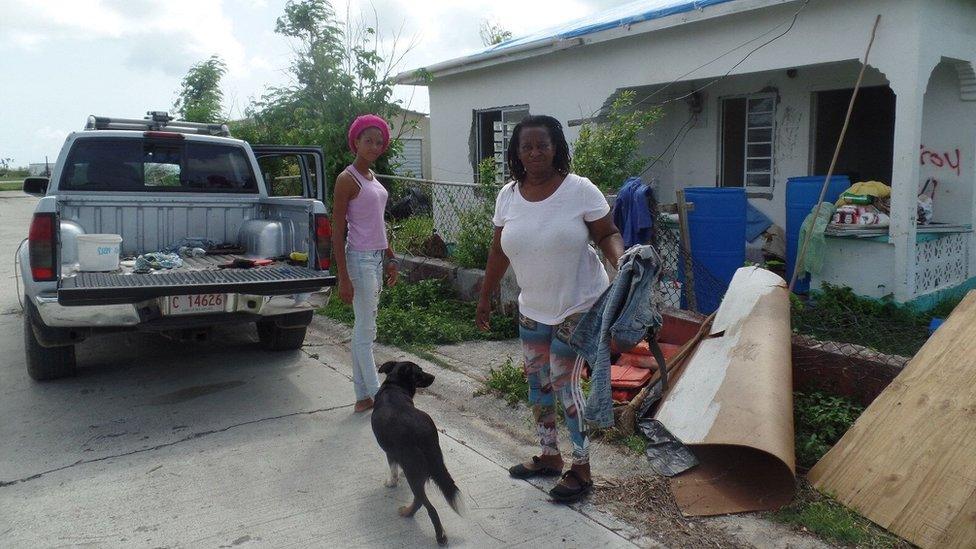
Juliette Warner and daughter Cheniesha, 16, at work clearing debris
The relatively unscathed single-storey property is a refreshing sight among its ravaged neighbours.
Mrs Warner hopes it will be habitable within a couple of weeks. "My sister lives in Canada so it was empty inside," she explains. "First we had to get all the water out; that took an hour. Next is mopping and scrubbing the floors."
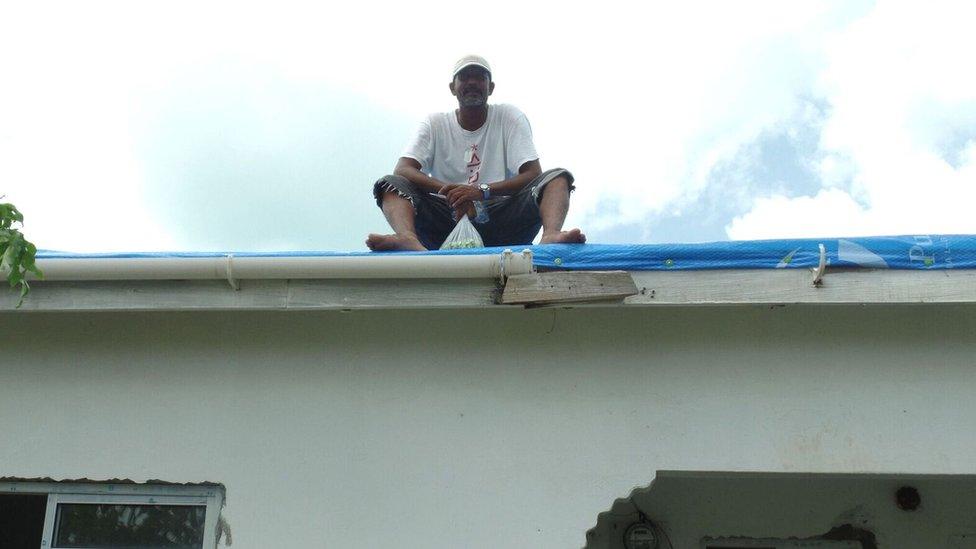
Devon Warner replaces the missing roof on a relative's home with tarpaulin
Once the family has a place to sleep, they will begin to remove the rubble from where their own home once stood. That alone will take a week, Mrs Warner says.
Government chiefs say they hope to restore electricity and running water to the stricken eastern Caribbean isle within two months. Efforts to replace telephone lines and keep disease-spreading mosquitoes at bay are also under way.
Most of the once-charming township of Codrington remains deathly quiet, feeling post-apocalyptic. A clock on one roofless wall is eerily stuck at 5:25, the time when the storm hit.
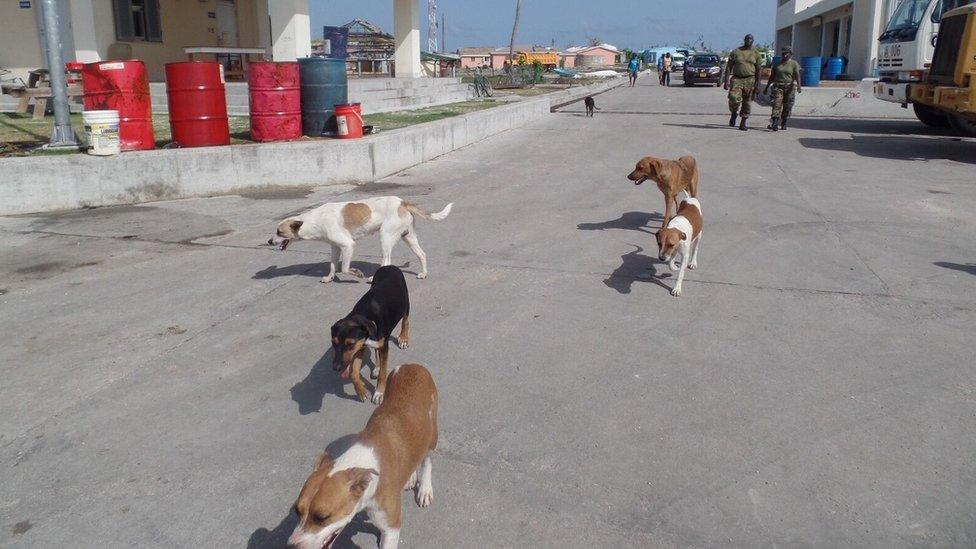
Evacuees' pets had to be left behind on Barbuda
Often the only noises come from the odd whirr of a generator, a cockerel's crow, or the sudden appearance of some skittish goats making their way down a side street.
"There's a lot of debris there - bits of roof, trees, someone's freezer," says Mrs Warner. "But I thank God for life; material things can be replaced."
Her most heart-breaking losses are her new sofa set, imported from the Virgin Islands, and her beloved goldfish.
"My seven goldfish were my pets; I loved them," she says. "They survived the storm but after the evacuation I couldn't get back to feed them."
Mr Warner says he is grief-stricken at losing the only photo of his parents when they were young, carefree and smiling on their wedding day.
Cheniesha is missing her friends, along with normality. "The worst part is that school's closed and no-one's around. I've been helping my mum and dad but it's so hot. I just want to see the place back to how it was before," she adds.
Where to start?
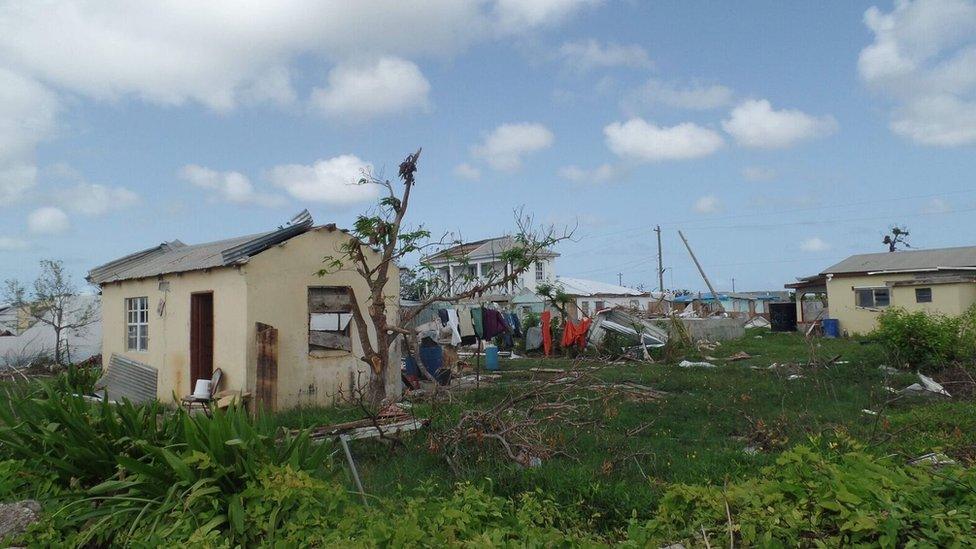
The damaged home where Manoah De Souza has lived most of his life
Eighty-year-old Manoah De Souza is starting by ensuring he at least has something clean to wear.
"I will have to replace the roof but I am starting by washing all my clothes. The water ruined everything, even my bed," he says sadly, outside the shattered property his parents built decades ago.
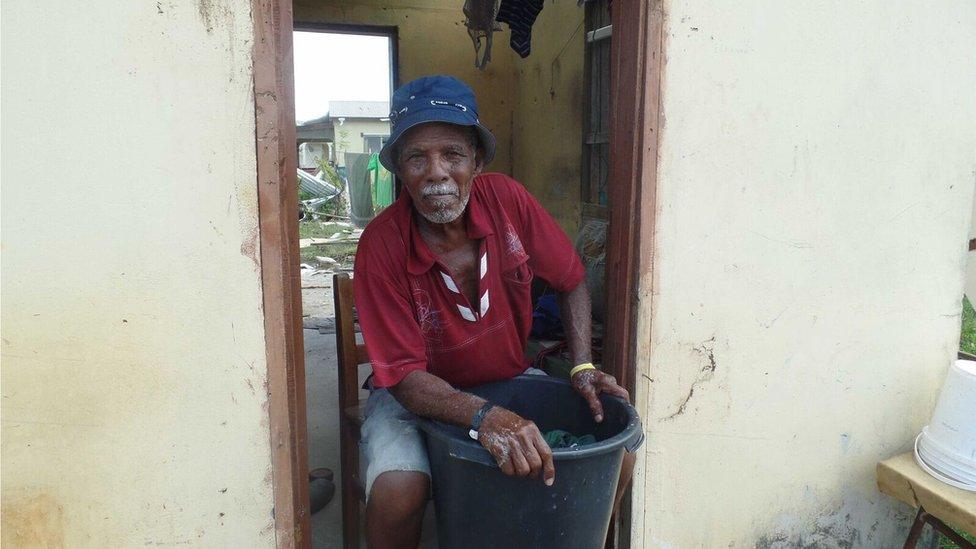
Manoah De Souza at work, handwashing his salvaged clothes
Fellow octogenarian Miriam Harris is also hard at work, single-handedly cleaning up the house she has lived in since 1982.
In the absence of her kitchen, she has been cooking on a traditional coal-pot. There is one bonus of the laborious daily hunt for wood to fire it up; the food tastes a lot better, she says with a wink.
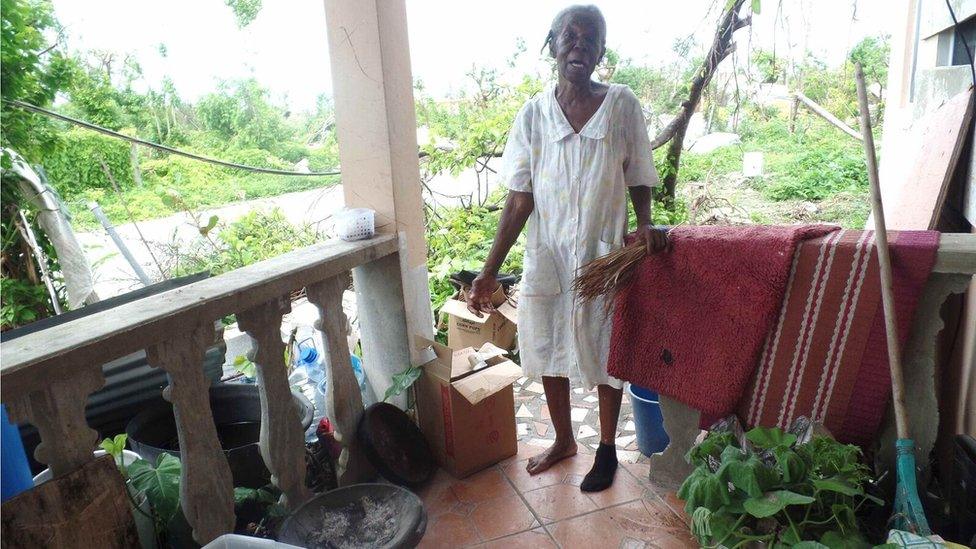
Miriam Harris is using an old-fashioned coal-pot for cooking in the absence of her kitchen
Myra Askiesays that while her guest house stood up to Irma, her mother's home next door did not. Standing between a forlorn rack of salvaged clothes and a heap of detritus, she says her elderly mother is still in shock.
"Hardly anything could be saved," Ms Askie says. "She lost all her photos of her parents and grandparents."
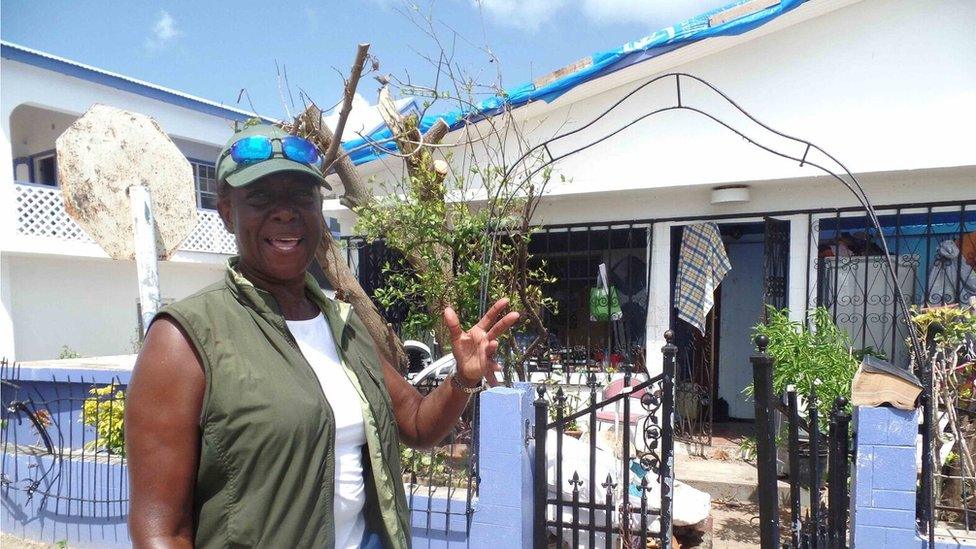
Myra Askie has been cleaning her 75-year-old mother’s home so she can return to Barbuda
- Published12 September 2017
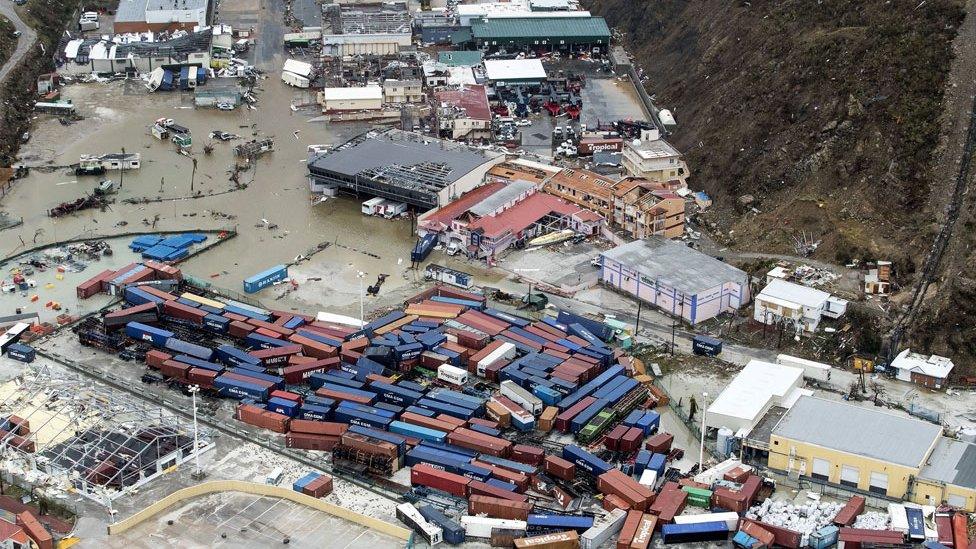
- Published7 September 2017
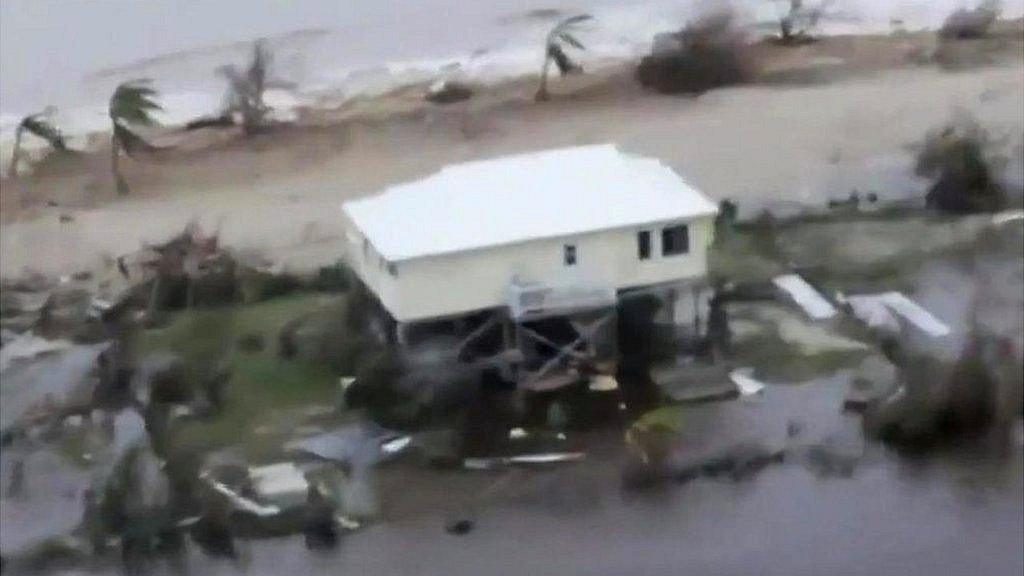
- Published8 September 2017
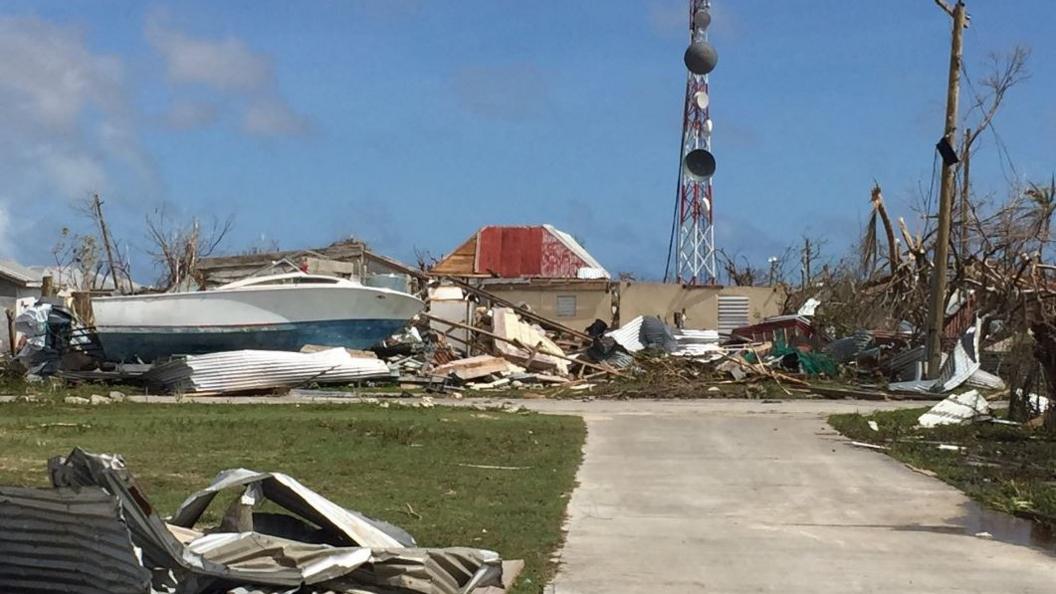
- Published8 September 2017
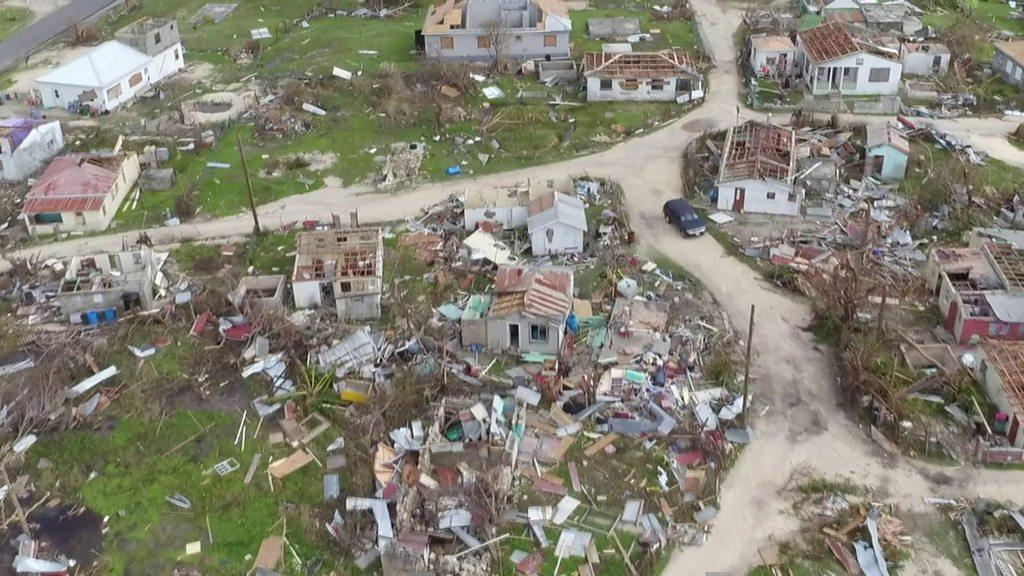
- Published7 September 2017
